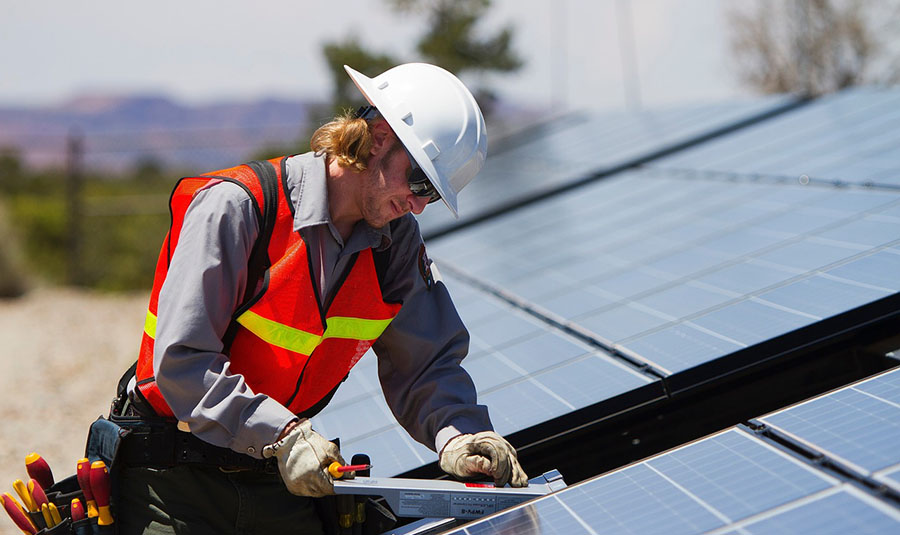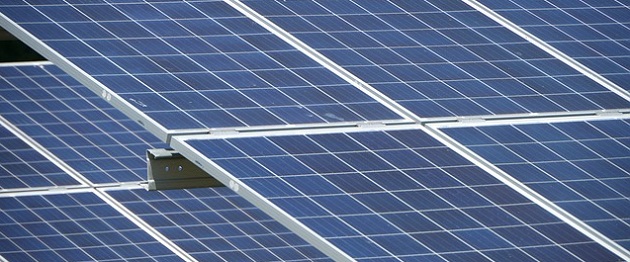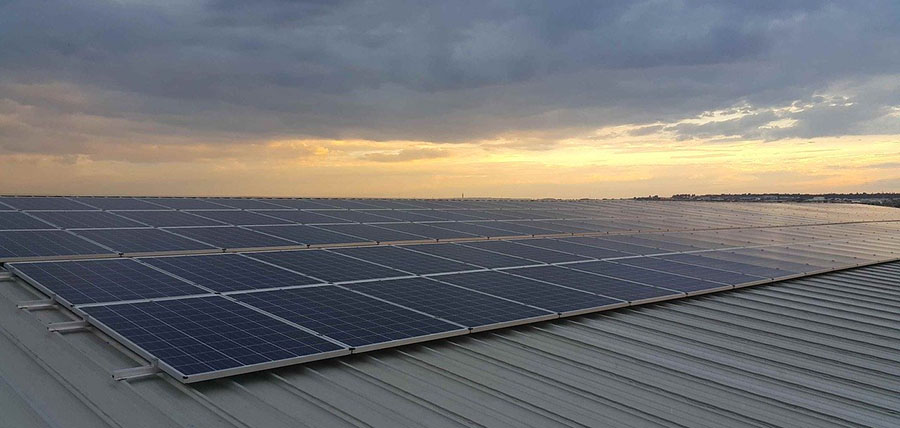In most conversations about energy, the topic of Big Oil versus renewables usually becomes a zero-sum game. Renewable advocates accuse Big Oil of conspiring to shut out wind, solar and other alt-energy sources in the pursuit of greater profits driven by fossil fuels. Big Oil defenders say that renewables, while an important adjunct, can never meet the global demand for energy provided by traditional sources: coal, oil and gas.
In fact, the big oil companies have never shunned renewable energy in their mix of business operations, and only recently have pulled back investments in solar and wind. But the reasons for that have less to do with conspiracies to rule the world through a fossil-fuel economy than plain old economics.
Dabbling in renewables
Big Oil first started dabbling in renewable energy after the 1970s oil shock, when Western governments started offering incentives and subsidies in a bid to become less dependent on Middle Eastern oil. The oil patch embarked on a wave of renewable energy ventures, including solar, wind and geothermal, with the most notable being Chevron, which made two major geothermal discoveries in the Philippines and eventually became the world's largest private producer of geothermal power.
In the late 1990s and early 2000s, as momentum gathered for a global climate change agreement, Big Oil embarked on a second wave of interest in renewable energy. Shell and BP were among the oil companies that invested in solar and wind.
In 2004, Shell Solar GmbH had the world's largest solar plant in Espenhain, Germany. Five years later, however, with the onset of the global recession, industrialized countries failed to match climate-change rhetoric with action, and many of these renewable ventures were sold off or shuttered. Shell exited its solar business in 2009 to focus on biofuels, and is now the world's leading vendor.
Other companies followed suit, including BP, which last year sold its $3.1 billion wind energy business, and Chevron, which earlier this year sold the business unit that builds small solar and landfill-gas systems. The sale came despite the unit earning a 2013 profit of $27 million, compared to Chevron's total earnings of $21.4 billion, according to Bloomberg.
Protecting the bottom line
Big Oil critics acknowledge that there has been some effort by these companies to diversify into renewables, but argue that these investments have never come close to moving away from their core business.
A 2013 article in Rolling Stone pointed out that none of the big oil companies have ever invested more than 10 percent of their business operations in renewables, even in the heyday of the early 1980s. The article accuses oil companies of being evasive in their reporting of money spent on alternative energy, and at worst, of "greenwashing." PR campaigns like BP's "Beyond Petroleum" and Shell's "Let's Go," hyping the company's efforts to broaden the world's energy mix, are cited as the worst offenders.
It's easy to conclude that Big Oil's foray into green energy is pure marketing, but a reaction to an article in Forbes shows there may be harder numbers at play. Forbes contributor Loren Steffy says that while the energy companies with the deepest pockets are indeed paring their investments in renewables to focus more on fossil fuels, it's not due to any "nefarious purpose" on the part of oil companies.
"Like all companies, oil companies exist to make money," Steffy writes. "Many plowed millions of dollars into alternative energy programs during the past decade, but those investments have generated little, if any return. Meanwhile, hydraulic fracturing has unleashed huge potential profits from oil fields in the U.S. -- properties that come with far less risk than drilling in other parts of the world." Steffy also points out that BP's decision to sell its wind business was less about reneging on its commitment to alternative energy than needing to raise funds to pay the legal costs associated with the Deepwater Horizon disaster.
There could be other practical reasons why Big Oil and renewables just don't match very well. In a recent Motley Fool article, contributor Travis Houim makes the point that "Big oil isn't nimble enough to be in the technology of renewable energy," using the example of Total buying a majority stake in SunPower. "Instead, that will be left to smaller, more focused companies, and big oil may play in the market by buying projects, which doesn't come with the same upside for investors."
A renewed courtship?
Ironically, some promising models of how Big Oil and renewables could once again join forces come from the Pembina Institute, one of the most strident critics of Big Oil.
Pembina's research found that there are challenging economics to Big Oil-renewable collaborations. Those include low natural gas prices relative to renewables, the comparatively low rates of return for renewable power projects, and the lack of political effort to advance climate change, including the absence of a meaningful price on carbon.
However, the institute found that renewables can work in oil and gas operations particularly when they are cost-effective against expensive diesel fuel or propane. Applications could include: small-scale solar systems in remote oil and gas locations used to power machinery like compressors and pumps; offshore oil platforms powered by solar and wind; recovering geothermal energy accessible from oil and gas wells; and using solar for enhanced oil recovery.
Like any good marriage, keeping the relationship strong requires work, commitment and shared values. While Big Oil and renewables have seen an on-again off-again courtship, there appears to be hope in reconstituting the relationship if it can be viewed less as a zero-sum game than one that could flourish if there are enough mutual benefits to be gained.
Andrew Topf
OilPrice.com




























































